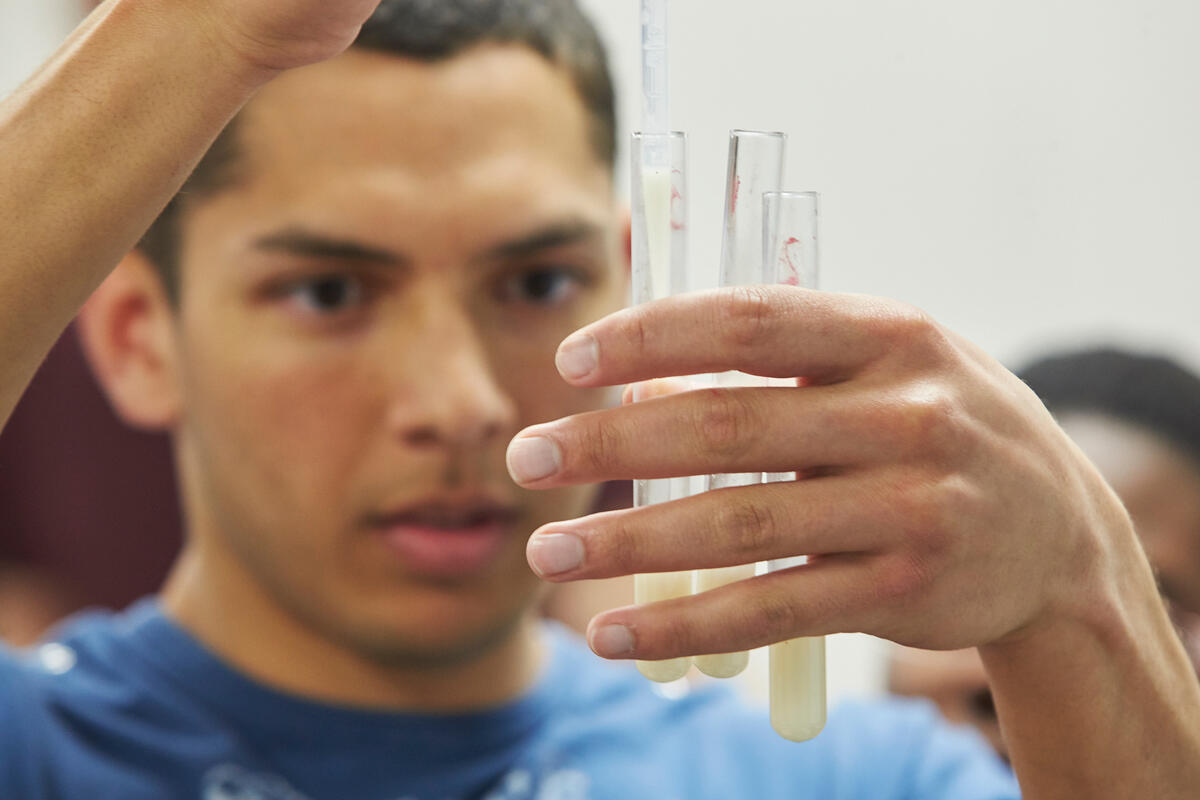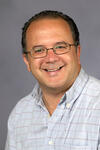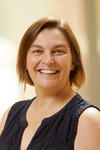
College of Sciences News
The School of Life Sciences offers programs that meet the needs of students intending to enter the workforce or pursue advanced training in the sciences, medicine, and other professional and technical fields. We provide a well-rounded foundation in natural, physical, and mathematical sciences that can set students up for successful careers and professional programs.
Current Sciences News

The first Neuroscience Research Showcase brings together experts across disciplines to share their work and spark new collaborations.

UNLV-led study in Nature Neuroscience expands our understanding of the disease linked with autism, opening possible new diagnostic and preventative approaches.

The professor of mathematical sciences and associate dean for research in the College of Sciences reflects on her journey.

UNLV geoscientist Arya Udry shares what motivates her in studying space, her work on the Mars Perseverance mission, and the world of knowledge a meteorite can bring.

The students and faculty of UNLV are springing into headlines around the country.

UNLV research team says high blood sugar levels appear to weaken function in key part of brain, mimicking Alzheimer’s.
Sciences In The News

A recent discovery of a molecular connection between autism and myotonic dystrophy, a type of neuromuscular disease, may provide a breakthrough on how clinicians approach autism spectrum disorder. The new study by an interdisciplinary team of biomedical scientists, published on April 21 in Nature Neuroscience, used myotonic dystrophy as a tool or model to learn more about autism – effectively using one disorder to better understand the other.

Autism may be caused by a little-known genetic condition, experts say. They've found children with myotonic dystrophy type 1 (DM1) are also 14 times more likely to develop autistic spectrum disorder.
Scientists from The Hospital for Sick Children (SickKids) and the University of Las Vegas, Nevada (UNLV) have uncovered a genetic link between autism spectrum disorder (ASD) and a rare genetic condition called myotonic dystrophy type 1 (DM1).

Up to now, humans have only been able to observe four dimensions in the universe – height, length, width and time. But beyond these dimensions, collectively known as 'spacetime', there may be more that we cannot perceive – including the fabled fifth dimension.
Two astronauts, Butch Wilmore and Suni Williams, are being closely monitored by flight surgeons after spending nine months in space.
The Church of Jesus Christ of Latter-day Saints says it will soon save the amount of water it takes to support 3,000 homes in a given year.
Sciences Experts




